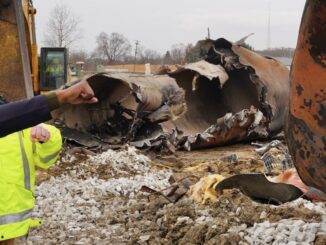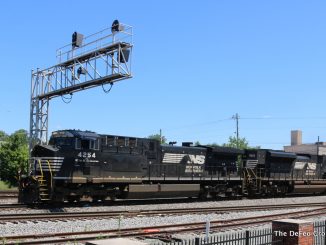
(The Center Square) — Since the Norfolk Southern train derailment in East Palestine, Pennsylvania lawmakers have shown greater concern about railroad safety in the commonwealth.
While state agencies have emphasized their safety processes and training for first responders, lingering issues remain about working conditions and follow-up testing to rail disasters.
On Friday, the Senate Democratic Policy Committee heard expert testimony from rail workers, first responders, and state regulators.
Lawmakers were critical of the status quo.
“The focus is on moving trains and not on moving trains safely,” said Sen. Lindsey Williams, D-Pittsburgh. “The bottom line is that regular derailments at the expense of our communities can’t be just another cost of doing business.”
There’s only so much state lawmakers can do, however, as much regulatory authority lies on the federal level.
State action generally complements federal regulators.
The Pennsylvania Public Utility Commission’s Rail Safety team, for example, comprises 10 workers and filed almost 2,000 inspection reports to the Federal Railroad Administration, PUC Vice Chairman Stephen Defrank said.
“As a general rule, the required standards are set by federal regulation,” Defrank said. “Therefore, any enforcement actions are brought by the FRA under those regulations and standards.”
However, the FRA doesn’t provide funding to states to support inspections anymore, adding a financial burden without granting enforcement authority. That responsibility, Defrank noted, must be done by the FRA.
Labor leaders advocated for more safety requirements and improved working conditions.
“It’s time to hold people accountable,” said Paul Pokrowka, legislative director for the Sheet Metal, Air, Rail & Transportation Union. “Norfolk Southern, as a matter of fact, their training has been cut 50% — the duration, 50%. They have less employees and they have cut their training by 50%.”
Workers also lack benefits routine in other industries.
“We don’t even have sick days,” Pokrowka said. “You’re disciplined for taking a sick day – disciplined.”
The importance of preventing derailments like in East Palestine was emphasized, but so was the need to share information about environmental safety after a disaster.
“The main concern we hear from Pennsylvania households and businesses is about chemicals deposited on their property,” said Andrew Whelton, a professor of civil, environmental, and ecological engineering at Purdue University, who has visited the East Palestine area five times since the derailment to test air, water, and soil samples. “I encourage Pennsylvania to share results transparently with the public.”
Whelton noted that the U.S. Environmental Protection Agency has refused “to disclose the chemical plume footprint created by Norfolk Southern.” Without the information, “The public cannot have confidence in Pennsylvania’s or Ohio’s environmental testing if the areas impacted by the disaster are not clear,” he said.
He also warned of “indecipherable well testing documents” sent to households by Norfolk Southern and incorrect data on how many wells had been tested by the EPA.
“I encourage Pennsylvania’s leaders to support their citizens and businesses with rapid and thorough environmental and agricultural sampling and analysis,” Whelton said. “I also encourage leaders to prioritize answering the specific questions asked by the people and businesses impacted.”
— Anthony Hennen




